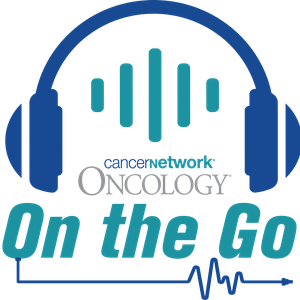At the 2026 Tandem Meetings, CancerNetwork® spoke with a variety of experts who presented on key developments and advancements across hematologic oncology. As part of different oral presentations and poster sessions, researchers and clinicians shared updated findings that may influence the management of myelodysplastic syndromes (MDS), leukemia, lymphoma, and other blood cancer types.
First, Fernando Duarte, head of the Bone Marrow Transplant Service at Walter Cantídio University Hospital (HUWC), hematologist and professor at the Federal University of Ceará, and president of the Brazilian Society of Cell Therapy and Bone Marrow Transplant, highlighted his presentation analyzing trends associated with allogenic hematopoietic cell transplantation (allo-HCT) among patients with MDS or myeloproliferative neoplasms (MPN) and other types of MDS. Data from the Brazillian SBTMO and CIBMTR registry revealed that patients receiving allo-HCT for MDS/MPN were typically older with worse performance statuses. Additionally, MDS/MPN independently predicted worse overall survival (OS) and relapse-free survival outcomes.
Next, Alfonso Molina, MD, MPH, a third-year Hematology and Medical Oncology fellow at Stanford University, detailed results from a phase 1 trial (NCT05507827) assessing Orca-T, an investigational allogeneic T-cell immunotherapy, among those with high-risk B-cell acute lymphoblastic leukemia (B-ALL). Treatment with Orca-T yielded disease-free survival and OS in all (100%) 18 evaluable patients after a median follow-up of 14 months (range, 3-35), which occurred without graft failure, significant graft-versus-host-disease, or severe CAR-mediated toxicity.
Finally, Irtiza N. Sheikh, DO, an assistant professor in the Department of Pediatrics - Patient Care, Stem Cell Transplantation and Cellular Therapy Section of the Division of Pediatrics at The University of Texas MD Anderson Cancer Center, discussed his presentation exploring differences in outcomes with lisocabtagene maraleucel (Breyanzi; liso-cel) across various treatment settings and patient populations with large B-cell lymphoma. Data demonstrated that among patients younger than 50 years old, liso-cel produced enduring responses across real-world and clinical trial settings, which were comparable to outcomes in overall populations.
References
Duarte FB, Garcia YDO, Hamerschlak N, et al. Comparative outcomes of allogeneic hematopoietic cell transplantation in myelodysplastic/myeloproliferative neoplasms and other myelodysplastic syndromes: Brazilian Sbtmo/CIBMTR registry analysis. Presented at: 2026 Transplantation & Cellular Therapy Meetings of ASTCT and CIBMTR; February 4-7, 2026; Salt Lake City, UT. Presentation 63.
Molina A, Shiraz A, Kanegai A, et al. Mature outcomes from the phase I trial of Orca-T and allogeneic CD19/CD22 CAR-T cells for adults with high-risk B-ALL. Presented at: 2026 Transplantation & Cellular Therapy Meetings of ASTCT and CIBMTR; February 4-7, 2026; Salt Lake City, UT. Presentation 31.
Sheikh IN, Patel K, Perales MA, et al. Clinical outcomes of lisocabtagene maraleucel (liso-cel) in YOUNGER PATIENTS (Pts) with relapsed or refractory (R/R) large B-cell lymphoma (LBCL). Presented at: 2026 Transplantation & Cellular Therapy Meetings of ASTCT and CIBMTR; February 4-7, 2026; Salt Lake City, UT. Poster 210.


